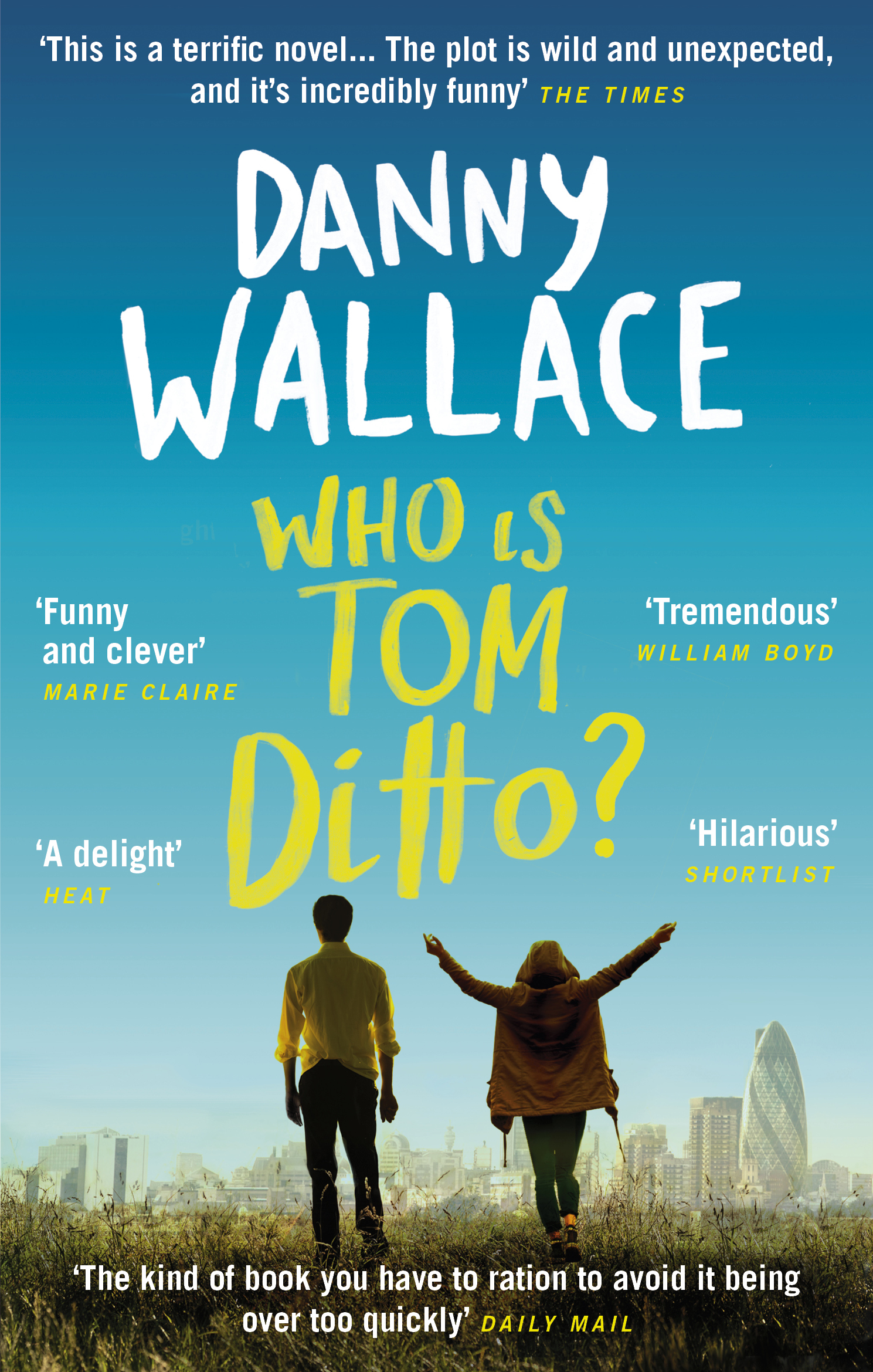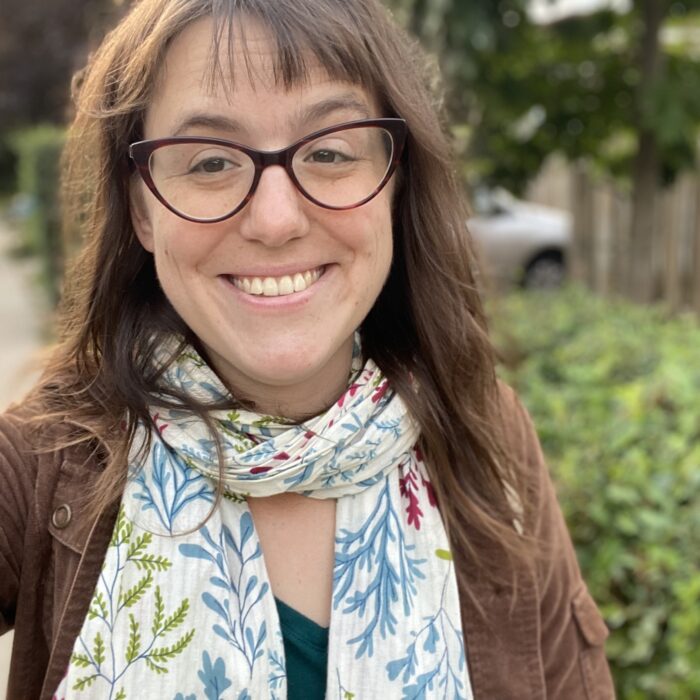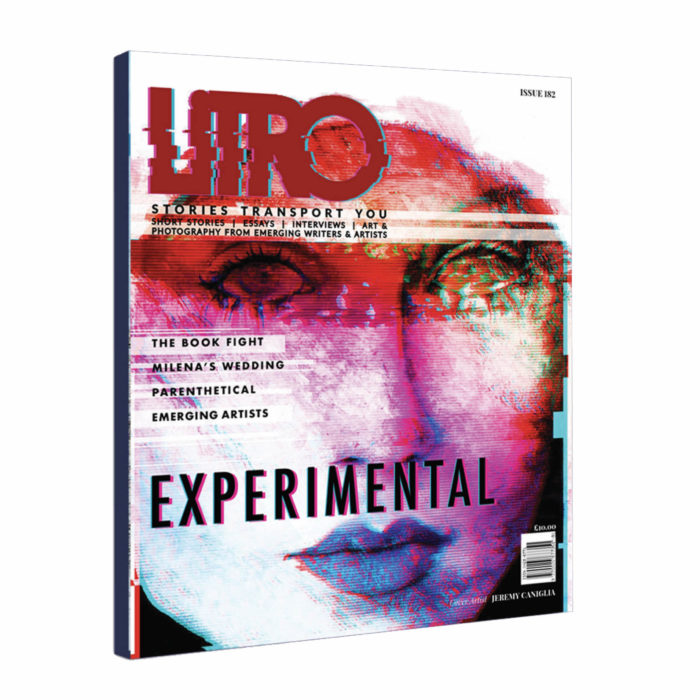You have no items in your cart. Want to get some nice things?
Go shoppingDanny Wallace, author of Litro’s current Book Club pick, Who is Tom Ditto tells us about how he snagged his first writing gig, as a teenager in the offices of Sega Power Magazine, his subsequent breaks into the world of books and insights into his latest novel ‘Who is Tom Ditto’,
Litro: Danny, thank you for joining us. We are delighted to be reading Who is Tom Ditto as our opening Litro Book Club read of 2015. It’s certainly a departure from your previous books. Firstly, could you tell us a bit about yourself? How long have you been a writer?
Thanks for having me. I hope you like the book. I’ve been a writer for years, in lots of different ways. Since I was a teenager, in fact, when I somehow inveigled my way in to the offices of Sega Power magazine and they offered me a gig as a video games reviewer. I pretty much used the fact that I could write to score myself free games. That led to writing for other games mags, which led to writing about film and comedy, which led to writing comedy itself, which led me into the world of books. So all in all, pretty much 25 years, man and boy.
Litro: In a nutshell, who is Tom Ditto? And what is Who is Tom Ditto about?
Well, Tom is a man whose life is thrown into turmoil when everything he thought he knew about someone is turned on its head. He gets home to find a note from his girlfriend. And that note says, “Tom – I have not left you. But I have gone.” So what does that mean? Where has she gone? And what does she mean, she hasn’t left him? She appears to have left him!
From that unusual moment, I wanted to build the book into something it would be difficult to second-guess. You think it’s one thing, then it turns into another, the way a relationship sometimes does.
Litro: Where did the inspiration for the book come from?
The inspiration for what the book turns into – and the people Tom meets along the way – came from two places. One was buying a sandwich one day from a well-known sandwich shop and studying the options on the board. There was a guy in front of me who’d also seen the options on the board, but unlike the rest of the people in the queue he just decided to start improvising. He went off-menu. It made me think about how often we just stick to the rules and go with the options presented, and it made me wonder about what else this guy did. What if I tasted his sandwich and it was the greatest sandwich of all time, and I’d been denying myself because I was so used to going ‘A number 7 please’? What else could this guy elevate from the mundane?
The second thing that was noodling around in my brain was hearing about a short-lived cult in the 60s or 70s. No one knew who they were or what they wanted or who funded them. But they used to stand in people’s gardens and make notes about the people inside. Why? Who knows? But I like the idea of these strange little underground movements. It made me think ‘what were these people missing, that they felt this was a good way to spend their time?’.
Litro: How important was it for you to set the book in a city environment?
Very important. Often you can feel loneliest when you’re surrounded by people. All of them appearing busy, sorted, satisfied. They have their friends, they have their plans, they have a destination. But there are thousands of people out there who don’t have any of that, and have to just act like they do so they appear to fit in. I wondered what might happen to people who don’t feel like they’ve found themselves; they don’t know who they are so they don’t know where they fit in. Was there a shortcut they could take to happiness?

Litro: There are elements of travel within the novel, would you advise young writers to drop everything and travel?
If you’re lucky enough to be able to see some of the world, then you should see some of the world. I wanted to take the reader out of London, and out of the current time, and follow different characters in a different place while exploring the same themes. There’s a universality to everything Tom’s going through even though the specifics are so different. And it lends the idea a certain credibility. Like: this isn’t such a crazy idea. People could do this. Maybe some of them already are.
But yes, being anywhere else at all can’t fail but inform what you do.
Litro: What other themes were you interested in addressing in the novel?
Identity – who we are versus who we want to be. Who we pretend we are and why. Loneliness and loss – what happens when we are part of something and then no longer are. I think you can agree, that makes it sound hilarious.
But also – the idea that there are stories everywhere you look. I spend a lot of time walking around with my baby daughter and I’ve become fascinated by names. Names on benches, streets named after people, names on memorials… I google them, find out who they were and what they did, because it feels like someone should. The other day I walked around a park listening to a YouTube recording of poems written and read out by a man whose name I’d seen on a bench. It was like the spirit of this guy was with me as we walked around one of his favourite places. Like he’d been remembered by someone who never knew him. I think in some sense, the characters in the book want to be remembered too. They just need to find out how to be.
Litro: Tom Ditto presents the morning news and weather for a fictional Talk London radio station, with your own background in Radio how close is the character of Tom to your own life and experiences?
Not at all. But I wanted his world to feel real. The detail had to be spot-on. I presented a radio breakfast show in London for a couple of years and worked alongside a newsreader called Matt Dyson. I could study the minutiae of his job, for four hours a day, every day. And I wanted Tom to have a relatable office environment to play with/suffer through. And all that had to be credible. He could have worked anywhere – he could have been a baker. But radio is a world I know.
Also, with early morning radio – there’s something about getting up in the dark, going to work in the dark, often working in the dark, then going home, having a nap and waking up in the dark. I wanted to get Tom to the light, if that makes sense.
Litro: What do you hope people will take away from reading your book?
Whatever they want. My first and most important mission is that they enjoy it.
Litro: Who are your favourite authors, and which writers have most inspired your own writing?
PG Wodehouse was a huge influence growing up, as was Sue Townsend with the Adrian Mole books. Both authors showed me how words on a page could make you laugh out loud. Just some printed shapes on a page could do that. The Beano comic got me reading and showed me how stories and characters (and the logic of the characters’ worlds) work. My favourite book is probably Diary of a Nobody, by George and Weedon Grossmith. These days, I love a John Niven book, I think Jon Ronson’s stuff is fantastic, and I can stare for hours at pictures in books which show the London I know and love, but in the Victorian era or the 60s or whenever.
Litro: We’re going to put you on the spot here… what’s the worse / life changing note that has been left for you?
I’m not sure, but I await its arrival with interest.
Litro’s mission is to find the best and most exciting new voices in fiction and non-fiction and give them a platform for their work. Four times a year, members of the Litro Book Club will receive an advance copy of the featured book in their mailbox, and then we will proceed to read it together. To read works from other writers to watch, get our All-Access membership membership gives you subscription to our print magazine, membership of our Book Club,unlimited online access invites to Litro Live1 events and much more.
Read the book? Tell us what you think on the Book Club discussion page.




